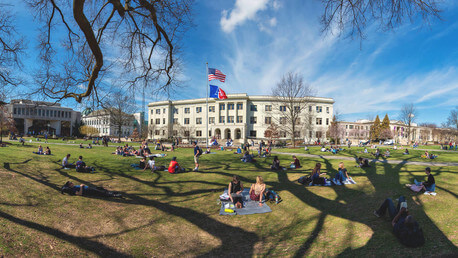Academics
Key Academic Stats
Highest Degree Offered
Doctorate
Total Number of Students
5,140
Total Number of Undergrads
3,787
Non Traditional Learning
- Online Classes
- Online Undergrad Degrees
- Summer Sessions
- Combined Institution Double Degree Programs
- Some Programs Requires Co-Op/Internship
Learning Options
- ROTC Army
- Study Abroad
- Honors Program
- Teacher Certification Offered
Student:Faculty Ratio
12:1
US National: 21:1Classroom Sizes
0
100
79%
Graduate in 4 Years US National: 28%
0
100
83%
Graduate in 6 Years US National: 52%
Faculty Overview
0
100
64%
Faculty With Terminal Degree US National: 36%
Gender
Ethnicity
What Students Are Saying
Classes are definitely more difficult than the average college however they are manageable and if you are struggling at any point professors offer office hours and are more than willing to sit down and help you develop a plan. Class sizes are kept small so that students can get to know their professors and build a bond with them.
Samantha from NJ
Classes are challenging but not unreasonable. Professors tend to be fair and very caring toward their students. Show up to class and study on the weekends, you will run out of time and not be able to sleep otherwise.
Stephanie from West Warwick, RI
Academic programs are very rigorous including core curriculum.
Tamarah from Bloomfield, CT
When a student graduates from middle school, high school is most likely and usually is just one step above (academically speaking) than middle school. I think most students need to keep in mind that college is what is shaping and molding us into what we are going to make of our future, which puts it a couple more steps above what high school. That being said, the academic rigor that one finds in a university setting is a 100% more challenging but at the same time it's 100% more rewarding. The classes and material is a lot more difficult, but what you get out of it is a lot more. I think the hardest part about being in a university setting is that for the most part you are away from home, which gives us, as a student the responsibility of doing our work and doing it on time.
Jennifer from Sea Cliff, NY












